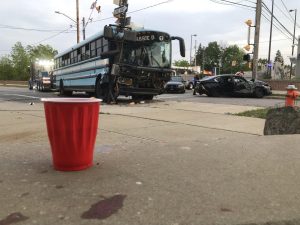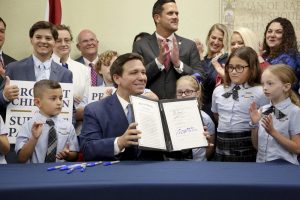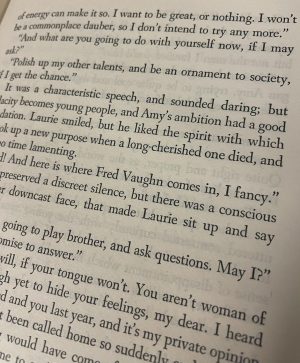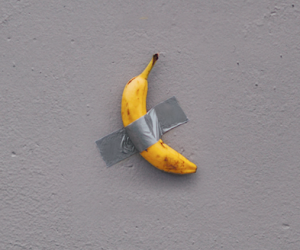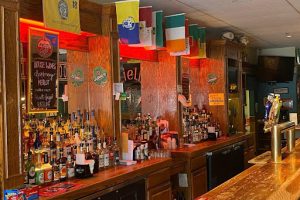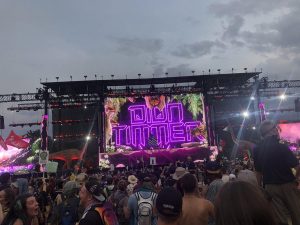The Demands of Love and Drag at John Carroll University
Sep 26, 2019
Many people in the John Carroll University community have expressed dissatisfaction with and disapproval of President Johnson’s recent decision to cancel the student drag show, a John Carroll tradition since 2007. I write this article in solidarity with those efforts and with the expressed intention of arguing that despite the President’s claim to the contrary, there is no other best way to support the LGBQTIA+ community at John Carroll than to immediately reinstate the drag show. Given a properly informed historical understanding of drag practices and a genuine commitment to discipleship in Christ, we must come to the conclusion that we have no choice other than to ceaselessly and consistently testify on behalf of radical inclusive love, and that this must concretely manifest in holding the drag show as scheduled.
To appreciate the moment we are facing, we need to understand how we came to it in the first place. In this particular case, we especially need to understand the history of violence the gender non-conforming community has faced. Because much violence against this community is unreported, statistics on hate crimes do not capture the extent of the violence motivated by sexual orientation and gender identity. However, available research suggests a clear pattern. We know that over twenty-five percent of transgender people report having faced violence, that the American Medical Association has described an epidemic of violence against the transgender community, that over forty-percent of non-gender binary youth today report having attempted suicide, and we have good reason to believe that these patterns have persisted for decades.
As a response to this kind of violence, and in the absence of any broader form of social recognition, the LGBTQIA+ community was forced to confine expressions of self-identity to more secluded, often private establishments, such as bars and nightclubs. It’s here that many practices of self-expression took on the contemporary form LGBTQIA+ persons continue today, including drag. But to find acceptance in the larger public community and to experience genuine social recognition, the LGBTQIA+ community must be permitted to engage in the longstanding practices of self-expression their community has developed in private and public spaces they were prohibited from entering. This is one reason why it is morally imperative that the LGBTQIA+ community hold and participate in pride parades. And it’s one reason why the LGBTQIA+ community must be permitted to participate in drag practices at schools, universities, and other educational institutions, including John Carroll. Drag isn’t just one practice that the LGBTQIA+ community engages in. Drag is a specific practice of self-expression that has been historically marginalized. To cancel the drag show is to once again marginalize that behavior. And when that behavior is a specific form of self-expression that has been historically prohibited, the continued prohibition of that practice amounts to a withholding of recognition for that identity. The promise of additional programming cannot change that.
Of course, additional programming is certainly welcome. As many have pointed out, the mission of John Carroll is to develop the whole person. This mission, and the clarity with which our university has interpreted the legacy of Jesuit learning, sets John Carroll apart. It’s what makes John Carroll’s mission unique, and its vision so full of promise. But that uniqueness and promise are propped up by an aptitude for balancing some empirical and theological truths we are called now to remind ourselves of. In the most recent decades, the fields of public health, social science, psychological science and natural science have all taught us that our well-being is connected to the way we relate to the broader community. Having a place where we can be who we are on our terms, provided we aren’t harming anyone else, makes a difference in our lives. It contributes to our psychological well-being, our physical well-being, and our spiritual well-being. Those are the facts, and they can be testified to by the relevant experts in the respective fields.
But these facts also bring us to a theological truth. We must remember that Jesus of Nazareth was himself a member of a marginalized community. He came with good news for everyone, but he especially came with good news for the marginalized, for the forgotten. He touched people many wouldn’t. He sat with people many didn’t sit with. He spoke to people no one spoke to. He healed and healing, we must remember, is a social act; it is a restorative social act. Many of the people Jesus healed were ostracized, marginalized, even despised. When he spoke with these people, when he touched these people, when he associated with these people, he gave them their identity back. And what we’re called to do is to be like he was. Remember that the idea of loving your neighbor predated Jesus of Nazareth. The new commandment Jesus introduced wasn’t just to love our neighbor, but to love our neighbor as Jesus loved us. And the way Jesus loved us was radically inclusive. The love Jesus expressed for us was one that sought to obviate the margins of society by inviting everyone to a table they had a seat at.
In this spirit, we must understand concerns about divisiveness. The crowds that followed Jesus were populated by people who did not agree with one another on every issue, sometimes not even on most issues. But they were united by the pursuit of truth, and the pursuit of love. What we need now is just what they needed then. We need more love. We need more truth. What does that look like? It might look like workshops. It might look like venues and spaces for protest. It might look like something else. But there are ways we can be that crowd. That’s who we are. That’s what we do best. The point is just that we can only do that, we can only be our best selves, if the drag show is reinstated.
Of course, we must also remember that we all stumble in many ways. There is no judgment here. Mercy triumphs over judgment. That is one of our core beliefs. Our best days still lie ahead. Our leadership is still strong. Mistakes are often made. We all make them. But there is forgiveness for them. There is healing for them. It’s just that this time, may it come in drag. Amen.


